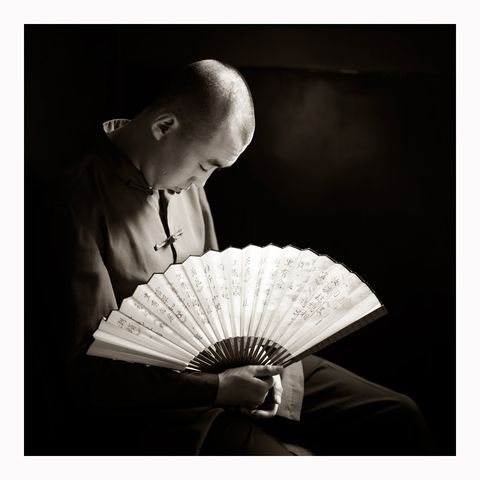The taboo of burnout

Scarica e ascolta ovunque
Scarica i tuoi episodi preferiti e goditi l'ascolto, ovunque tu sia! Iscriviti o accedi ora per ascoltare offline.
The taboo of burnout
Questa è una trascrizione generata automaticamente. Si prega di notare che non è garantita la completa accuratezza.
Descrizione
The taboo of burnout by Marzanna Maciejewska Is burnout among high achievers still a taboo subject? Let’s start by recalling what burnout actually is. The classic model developed by Christina...
mostra di piùby Marzanna Maciejewska
Is burnout among high achievers still a taboo subject?
Let’s start by recalling what burnout actually is. The classic model developed by Christina Maslach is based on three components:
- Emotional exhaustion – Refers to feelings of physical and emotional fatigue caused by work overload. A person feels drained of energy, leading to diminished motivation and engagement.
- Cynicism – Characterized by emotional detachment from work, as well as indifference or even negative attitudes toward colleagues, clients, or coworkers.
- Reduced sense of personal accomplishment – Involves feelings of dissatisfaction with work, a low sense of professional efficacy, and the belief that desired results aren't achieved despite hard work.
"Just do it" / "You can have it all" / "You can always do more" / "Sky is the limit"
Fast-paced, high-performance living is the cultural ideal of our time. Even the most critical among us succumb to the subtle social pressure to achieve, experience, and "make the most" of every moment, without "wasting" time. Our social DNA almost compels us to align with whatever is currently deemed important and desirable.
You might think that a hectic professional life grants a pass to spend leisure time in a more relaxed way. However, even leisure is governed by productivity and purpose. Just a quick scroll through any social media feed reveals this. Many people I've worked with had no free evenings during the week, and boredom is a word erased from many vocabularies. Admitting to burnout feels like confessing that we don’t align with what modern culture and society deem the ideal life and adaptation to it.
If everything is so great, why does it feel so wrong?
Many individuals experiencing symptoms of burnout feel a disconnect between their mental, emotional, and physical state. If we’ve pursued or achieved a career that "millions would die for" (to paraphrase Miranda from *The Devil Wears Prada*), then struggling with burnout can bring feelings of confusion, disbelief, shame, and other difficult emotions. Everything seems as it should be, so what went wrong? Often, I encounter an attitude like: "Something temporarily broke, but it’ll soon return to normal." The body, which responds with pain, insomnia, chronic fatigue, panic attacks, or loss of appetite, is treated as a machine to be repaired. Misunderstanding what's happening can lead to hiding symptoms and downplaying them.
Fear of stigmatization and consequences
Fortunately, burnout and mental health are being discussed more openly nowadays. However, many environments still exist where taking care of one’s needs is labeled (implicitly or explicitly) as "giving up" or "surrendering," while workaholism is rewarded, either overtly or subtly. A common fear among those experiencing burnout is being sidelined from important projects, losing opportunities for promotion, or even being distanced from the team. For those in leadership positions, there is the added responsibility of maintaining team morale, motivation, and energy.
Some myths about burnout
Perhaps the most widespread myth is that burnout is solely linked to stress and overwork. In reality, burnout can affect people who don’t feel like they are working excessively. On the other hand, some who work intensely don’t show signs of burnout. Another well-established myth is that burnout is a one-time event. In fact, it can recur cyclically, especially if long-term changes are not implemented or if the deeper causes of burnout aren’t addressed. This myth is often paired with the belief that rest, a longer vacation, and reorganizing life will solve everything.
Key human needs (as outlined by Gabor Maté) show what we need for optimal functioning:
- A sense of belonging and connection
- Autonomy and the ability to make decisions that impact one’s life
- Competence and mastery
- Genuine self-esteem, independent of achievements, possessions, or others’ opinions
- Trust: Awareness of having personal and social resources necessary for continued life
- Purpose and meaning: Seeing oneself as part of something greater than personal well-being and contributing to its fulfillment
How can we make burnout a more open topic?
I see three pathways:
- Every "high-functioning" person who has experienced burnout and decides to make their story public, sharing their experiences and coping strategies, paves the way for others. This encourages more open conversations about the full spectrum of human experience.
- Organizations need to focus on creating psychologically safe environments, so people can talk about burnout more openly without fear of punishment.
- Continuous education and raising awareness about the risk of burnout and methods of overcoming it are crucial.
Informazioni
| Autore | Aleksander Poniewierski |
| Organizzazione | Aleksander Poniewierski |
| Sito | - |
| Tag |
Copyright 2024 - Spreaker Inc. an iHeartMedia Company

Commenti